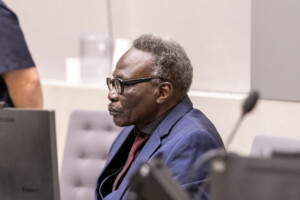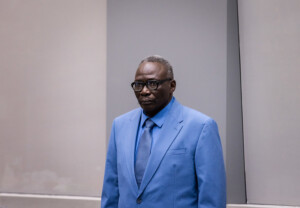On Friday, the African Centre for Justice and Peace Studies (ACJPS) published a statement condemning the sentencing to death by stoning of 20-year-old Amal*, after she was found guilty of adultery, violating article 146 (2) of the Sudanese Penal Code 1991.
Presiding judge Haroun Adam of the Kosti Criminal Court in White Nile State sentenced Amal to death on June 26. The sentence is yet to be approved by the High Court, as authorities have also failed to refer the sentence to the court for approval. Amal’s lawyer has appealed her case to the High Court.
ACJPS called on Sudanese authorities to “overturn the sentence of death by stoning which was applied in violation of the rights to fair trial and in violation of the right to life and imposing cruel, inhuman and degrading punishment and guarantee Amal immediate and unconditional release, and right to a fair trial.”
There is evidence to suggest that Amal’s interrogation and trial was “tinted with several irregularities,” according to ACJPS. After separating from her husband and moving back to her family’s home, she was interrogated by a police investigator who allegedly illegally obtained a confession from her. The African Centre "has been reliably informed that the investigating police officer did not inform Amal that the information she shared during her interrogation would be used as evidence against her during her trial,” said the statement.
Regarding her trial, it commenced without obtaining a formal complaint from the police in Kotsi, Amal was denied legal representation, and the charge and penalty were not explained to her. Under Article 135(3) of the Sudanese Criminal Procedure Code 1991, a defendant is entitled to legal representation in any criminal case that carries a punishment of 10 years or more imprisonment, amputation, or death.
“The application of the death penalty by stoning for the crime of adultery is a grave violation of international law,” said ACJPS. This law includes the right to life and the prohibition of torture and cruel, inhuman, or degrading treatment or punishment, set out in the International Covenant on Civil and Political Rights (ICCPR) to which Sudan is a state party. Article 6 of the ICCPR stipulates that, “sentence of death may be imposed only for the most serious crimes”.
In 2021, Sudan ratified the Convention Against Torture and Cruel Punishment. The International Federation for Human Rights (FIDH) and ACJPS, its Sudanese member organisation, called on authorities to remove the penalty of stoning and abolish the death penalty in the Sudanese legal system, and prioritize legal and institutional reforms to ensure absolute prohibition of torture.
“Most cases of adultery in Sudan are issued against women, highlighting the discriminatory application of the legislation, in violation of international law that guarantees equality before the law and non-discrimination based on gender,” according to the statement.
Reports of violent suppression of freedoms that characterised the 30-year regime of Omar Al Bashir are increasing again in all levels of society, and so are friendly ties between the military and Al Bashir's ousted National Congress Party (NCP), Radio Dabanga reported in July.
Since the coup on October 25, 2021, the military have reintegrated civilian remnants of Al Bashir’s fallen regime into the government, including members of the former ruling NCP and its affiliates, Salah Ben Hammou wrote in his analysis in The Washington Post last week. “These measures include appointing party members to ministerial positions, unfreezing their financial assets and stacking the civil service with NCP loyalists,” he stated.
Last year, the FIDH and ACJPS published a report calling for Sudan to "urgently resume its transition, ending the ongoing acts of violence and repression, releasing all political prisoners in the country, and prosecuting those responsible for human rights violations," along with an international independent investigation into human rights violations committed since the military coup.
* The first name is an alias. FIDH has been asked by Amal’s lawyer to preserve her anonymity in public communications.
 Sudanese prison (File photo)
Sudanese prison (File photo)











 and then
and then